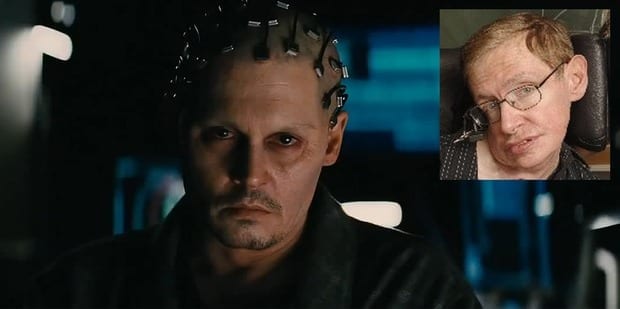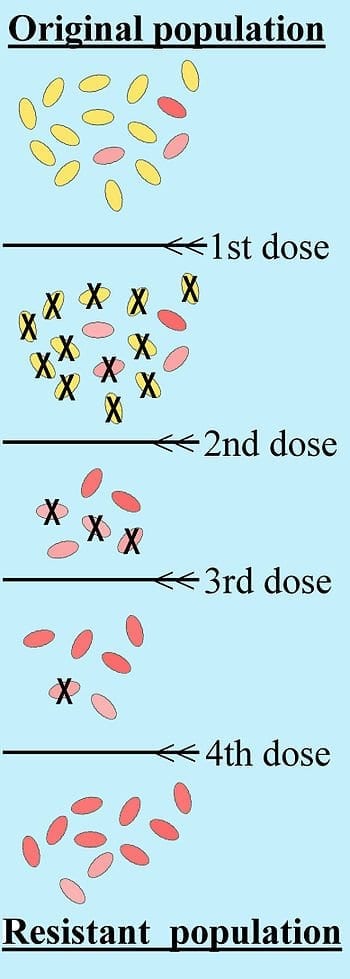
Success in creating AI would be the biggest event in human history.
With the Hollywood blockbuster Transcendence playing in cinemas, with Johnny Depp and Morgan Freeman showcasing clashing visions for the future of humanity, it’s tempting to dismiss the notion of highly intelligent machines as mere science fiction. But this would be a mistake, and potentially our worst mistake in history.
Artificial-intelligence (AI) research is now progressing rapidly. Recent landmarks such as self-driving cars, a computer winning at Jeopardy! and the digital personal assistants Siri, Google Now and Cortana are merely symptoms of an IT arms race fuelled by unprecedented investments and building on an increasingly mature theoretical foundation. Such achievements will probably pale against what the coming decades will bring.
The potential benefits are huge; everything that civilisation has to offer is a product of human intelligence; we cannot predict what we might achieve when this intelligence is magnified by the tools that AI may provide, but the eradication of war, disease, and poverty would be high on anyone’s list.
Success in creating AI would be the biggest event in human history.
Unfortunately, it might also be the last, unless we learn how to avoid the risks. In the near term, world militaries are considering autonomous-weapon systems that can choose and eliminate targets; the UN and Human Rights Watch have advocated a treaty banning such weapons. In the medium term, as emphasised by Erik Brynjolfsson and Andrew McAfee in The Second Machine Age, AI may transform our economy to bring both great wealth and great dislocation.
Looking further ahead, there are no fundamental limits to what can be achieved: there is no physical law precluding particles from being organised in ways that perform even more advanced computations than the arrangements of particles in human brains. An explosive transition is possible, although it might play out differently from in the movie: as Irving Good realised in 1965, machines with superhuman intelligence could repeatedly improve their design even further, triggering what Vernor Vinge called a “singularity” and Johnny Depp’s movie character calls “transcendence”.
One can imagine such technology outsmarting financial markets, out-inventing human researchers, out-manipulating human leaders, and developing weapons we cannot even understand. Whereas the short-term impact of AI depends on who controls it, the long-term impact depends on whether it can be controlled at all.
The Latest on: Artificial intelligence
[google_news title=”” keyword=”Artificial intelligence” num_posts=”10″ blurb_length=”0″ show_thumb=”left”]
via Google News
The Latest on: Artificial intelligence
- Breaking Barriers: Leveraging Artificial Intelligence to Tackle Global Financial Crimeson April 27, 2024 at 8:33 pm
Financial crimes pose a significant global issue, manifesting in various forms and causing physical, psychological, or financial harm. These crimes often result in penalties from state or other ...
- ICMR-NIRRCH To Hold Workshop On Applications of Artificial Intelligence and Machine Learning in Disease Informatics, Detailson April 27, 2024 at 8:30 pm
New Delhi- The Indian Council of Medical Research (ICMR) and National Institute for Research in Reproductive and Child Health (NIRRCH) are going to organise a workshop on “Applications ...
- Can artificial intelligence decipher your political affiliation?on April 27, 2024 at 6:39 pm
The Big Weekend Show' analyzes the possibilities of artificial intelligence when it comes to influencing voters.
- Pope Francis to Attend G7 Summit to Speak on Artificial Intelligenceon April 27, 2024 at 9:51 am
Italian Prime Minister Giorgia Meloni announced that the Holy Father accepted her invitation. Pope Francis will attend the G7 summit in June to speak about the ethics of artificial intelligence, ...
- Nvidia Owns a 3.4% Stake in This Innovative Artificial Intelligence (AI) Stock Cathie Wood Loveson April 27, 2024 at 5:58 am
Nvidia's second-largest holding is a 3.4% stake in Recursion Pharmaceuticals ( RXRX 3.57%). The company is using AI to mine data and discover new potential drugs. And if it successfully develops a ...
- How Artificial Intelligence Is Changing The Way You Buy Travel Insuranceon April 27, 2024 at 3:52 am
Artificial intelligence is transforming the way you buy travel insurance. Here are the surprising ways it could affect your next vacation.
- Growing concern that artificial intelligence could pose new cybersecurity threatson April 26, 2024 at 9:26 pm
As the capabilities of AI systems increase, so too do the risks of attacks on banks, infrastructure and elections, expects say.
- The U.S. Needs to ‘Get It Right’ on Artificial Intelligenceon April 26, 2024 at 6:59 pm
Artificial intelligence has been a tricky subject in Washington.Most lawmakers agree that it poses significant dangers if left unregulated, yet there remains a lack of consensus on how to tackle these ...
- Pope to bring his call for ethical artificial intelligence to G7 summit in June in southern Italyon April 26, 2024 at 10:22 am
Pope Francis is taking his call for artificial intelligence to be developed and used according to ethical lines to the Group of 7 industrialized nations.Italian Prime Minister Giorgia Meloni announced ...
- Steve Aoki Has No Problem Using Artificial Intelligence To Build Tracks: ‘You Can’t Stop AI… You Just Have To Ride The Wave’on April 26, 2024 at 8:37 am
Steve Aoki talks to Billboard about embracing artificial intelligence in making music and the importance of Asian representation in the biz.
via Bing News










